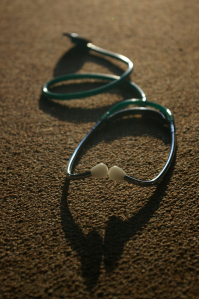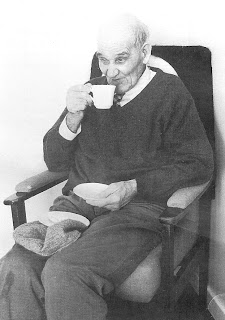
One of the most unexpected things about diagnosis is the loss of the right to define yourself.
Just as you are presented with the word that brings all the disparate parts together, that explains both the things that are incomprehensibly difficult and those that are impossibly easy, everyone and their dog suddenly has an opinion on how autistic you are (or aren’t).
I’m guessing if you are male, a computer geek, an engineer or anyone whose adult life has in large part encompassed the hard sciences or the underpinning knowledge industry, the tendency is more towards ‘spot the autistic trait’ and enthusiastic searching for other (generally male) relatives back through several generations who can now be included in the autistic family.
If you have none of the above traits, the response is likely to be a little more… mixed.
Outright denial, or ‘but you have very mild autism, don’t you?’ is the commonest. Inviting you to participate in denial of who you are, painting that denial as a way to gain acceptance, a way to reassure the speaker that they need not worry themselves about any considerations or accommodations, is a classic NT response.
‘You may be autistic but let’s not talk about it!’ (phrased in various ways, both overt and covert), is another.
‘I don’t know anything about autism.’ (and I am not going to spend any time listening to explanations and educating myself, regardless of how useful it may be).
‘Let’s change the subject because I think you are heading towards asking me to make some kind of accommodation for your disability, and that will place me in the awkward position of having to say that I don’t believe you need that accommodation and I kind of suspect things might get awkward/ugly at that point.’
Four years on from my diagnosis, nothing has changed. I have pared back my life to a minimum. I still work full time, even though the physical and mental cost is enormous, because my one aim is to pay off the mortgage on my house. Once I have the security of a roof over my head that no one can take away from me, I will also have the foundation of the life I want to lead. I do the bare minimum of socialisation with work colleagues – the Christmas party is sort of compulsory – and I have built a cheerful Facebook persona who posts cat videos and cheerfully owns the label of crazy cat woman (though I’m not entirely comfortable with the use of crazy). I work day shifts, though I live under the threat of return to evening and night shifts in the future.
I come home to an essentially silent house. No television, rarely any background music. Maybe one or two cars an hour pass on the dirt road outside. Everything is where I left it when I set out for work that morning (unless a cat has knocked it over). No perfumes, no strong smells. Maybe one message a month on the answering machine, that it will take me two days to be able to listen to anyway. Depending on the time of day and season, I know which parts of the house will be too bright or too warm to work in. If I need to lie in bed in the dark for an hour there is no one to tell me I am lazy, or I am giving in, or I am not trying hard enough. My occasional meltdowns are hidden from sight.
I am a doctor working in an emergency department, handling one of the least routine-based jobs it is possible to imagine. Dealing with people in all their unpredictability and emotional incontinence. (I had a whole lot of other descriptors there but deleted them. Strange how neurotypicals have no such consideration when labelling us.) No one I know lives the life I live outside of work in order to cope with the demands of the job, and yet it seems that, surrounded by health professionals, not one of them knows what autism looks like outside of Rain Man.
It has been occupying a lot of my thinking time because I have once again failed an exam. The parameters of the exam included the following:
- An oral, face to face discussion with ten separate examiners one after the other. Compulsory eye contact, and comprehension of expressions and general body language essential to determine when you are on the right track.
- Ahead of each discussion, five minutes to read a list of information, with or without photos and lab results – some, all or none of which may turn out to be relevant to the subsequent discussion.
- A totally unfamiliar city requiring flights, hotels and a brightly lit overstimulating exam room with humming airconditioning.
Not only did I fail, but the areas I failed in were my specific strengths. On being asked why I had not immediately enrolled for the next sitting of the exam I was shepherded into a discussion with someone who has expressed doubts about my diagnosis in the past. When I asked whether any candidates in the past had been granted accommodations because of disabilities he admitted that this had occurred, but when I asked for detail he refused to tell me what kind of accommodations had been made or how you go about requesting them.
This is why autistics fail.
The exact details are specific to my position, but the same general response is experienced by autistics everywhere who need to pass an exam, an interview, an assessment. It doesn’t matter how ‘smart’ you are, whether you are being assessed at floorwashing or caring for a critically ill newborn. You can figure out exactly why you are failing but the likelihood of having the explanation accepted, let alone having adjustments made so you are on a level playing field, is still close to zero.
And it’s such a waste. I can only speak for my own experience, but I am endlessly frustrated at not being allowed to function at the extent of my abilities. I am a doctor with over 20 years of experience. I have an IQ of at least 160. I am very good at what I do. Yet a combination of recurrent bullying, insecurity, ostracism and pointless rigidity in systems that are set up solely to benefit NTs has limited what I can give back to a ‘humanity’ that most days seems to want only to exclude and deny the existence of me and my kind. The price I already pay simply to keep functioning in this job is simply airbrushed out of existence, as though it’s just some minor idiosyncrasy.
This tale is repeated again and again.
I am a doctor. You may be something else.
But I am willing to bet that in some way I am telling your story too.








